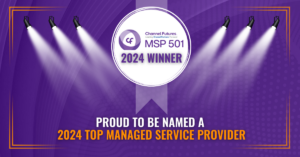Today, cybercriminals have advanced their data phishing techniques and IT services providers in Los Angeles must do more in protecting their clients from falling victim. One of the most rampant techniques that these criminals use to obtain data is using spam emails. The email usually contains a link, which upon clicking or opening launches malware on your computer. With proper awareness, employees will know what to do if they receive strange emails from strange senders.
Following are tips to help you stay clear of spam messages:
Avoid Clicking on the Links
As mentioned earlier, the phishing email may come with a link. Do not rush to open. You can hover over the link to see its destination. If the destination address is somewhat strange, do not click it at all without first checking to see whether it is safe.
Do Not Open Attachments
If the email comes with an attachment, avoid opening it until you are sure of the sender to make sure it is legitimate. Cybercriminals send emails with attachments that contain scripts meant to launch malware on a computer. This may delete your files or make them accessible to unauthorized personnel.
Beware of Insecure Websites
A secure website has URL that starts with “https”, rather than “http”, and a padlock icon on it. IT services providers in Los Angeles warn against entering your credential into insecure passwords.
Beware of Emails with Misspellings and Grammar Mistakes
Spammers usually use low-paid people with poor command of English, thus constructing messages full of grammar errors. If you notice that the email has too many grammatical errors, keep off until you prove that it is from a legitimate sender.
Be Cautious of Threatening or ‘Urgent’ Emails
Spammers tend to use language that prompts you to act immediately or face consequences. Take your time before taking any action requested on the email.
Do Not Send Confidential Data over Email
Emails can be intercepted, thus they are not the best medium for transferring sensitive information.
Impersonal Salutation
If the salutation part does not mention your name, it could be a spam unless you can verify that it is from a legit source sent to many people. If the message seems to be from someone you know, call him or her to confirm.
The above basic tips will help you avoid falling victim of spam messages. You can partner with an IT services provider in Los Angeles to conduct an awareness training with your employees to ensure everyone is fully aware. To learn more about cybersecurity, contact us at Advanced Networks for a deeper insight.




